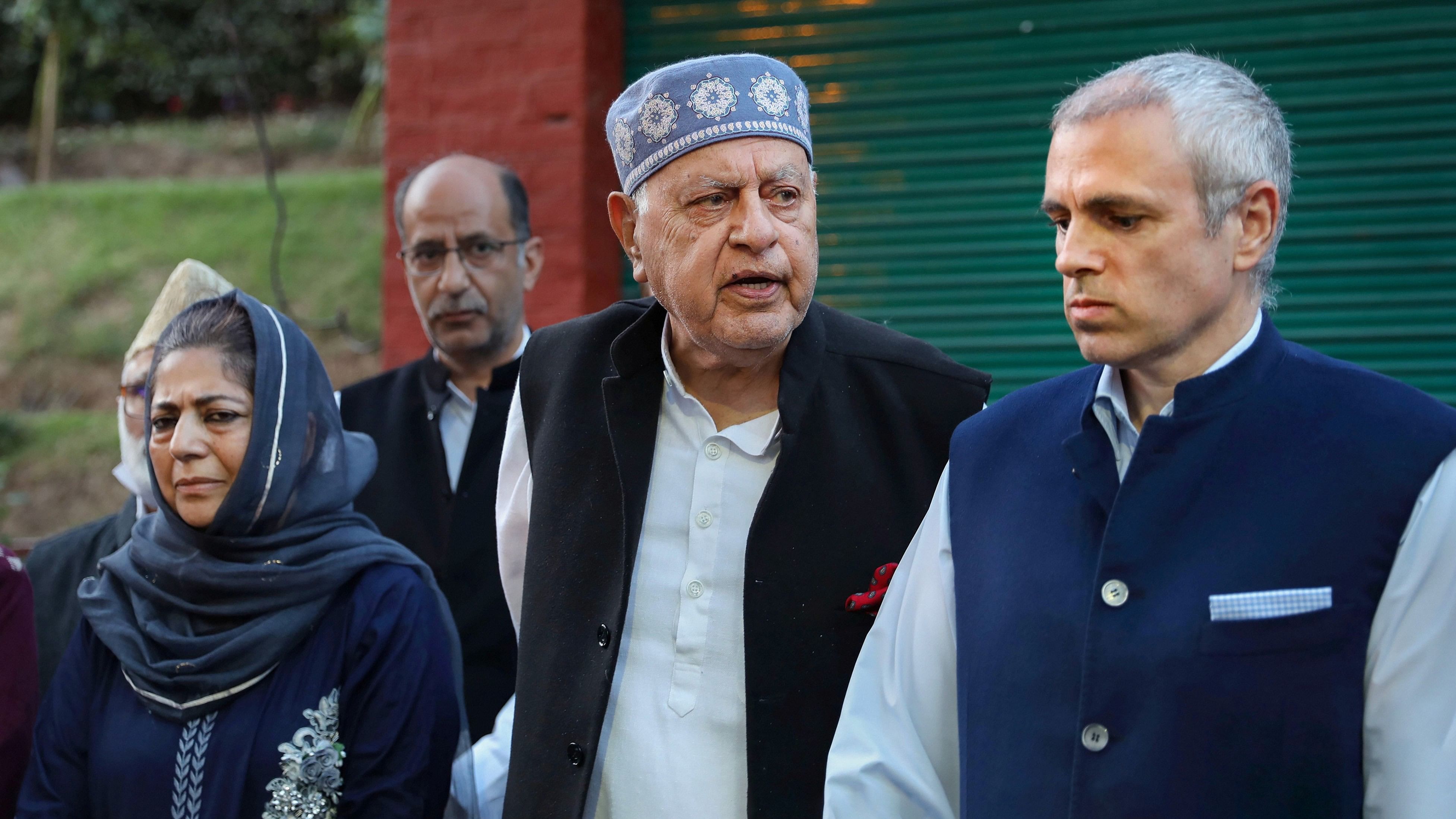
File photo of Jammu and Kashmir National Conference President Farooq Abdullah with his son Omar Abdullah and People's Democratic Party (PDP) President Mehbooba Mufti.
Credit: PTI Photo
Srinagar: With the dust settling after the abrogation of Article 370, the longstanding platforms of ‘internal autonomy’ and ‘self-rule’ for Jammu and Kashmir, once pillars of the National Conference (NC) and People's Democratic Party's (PDP) political ideologies, now lay in ruins.
The whispers of change echo through the once unshakeable bastions of the NC and the People's Democratic Party (PDP). In the run-up to the first major election post the abrogation of the special status for the erstwhile state under Article 370, the NC and PDP have embarked on a journey of reinvention, with their goalposts shifting.
During the ongoing election campaigning, the two most influential parties in Kashmir’s political landscape now talk about the restoration of Article 370, but only in hushed voices. The NC and PDP find themselves navigating uncharted waters with their once unassailable positions now under scrutiny.
NC vice-president Omar Abdullah and PDP president Mehbooba Mufti, who are contesting the first election in BJP’s ‘Naya Kashmir’, have not made even a passing reference to the maximalist and emotive slogans they once championed — a grim reminder of how they have buckled before the saffron party’s muscular policies.
For the most part now, top leaders of the two parties talk about preventing an “onslaught” on the “collective identity, land, jobs or resources” of Kashmiris, or about restoring the “dignity and honour of the people” - underplaying the direct demand for restoration of the erstwhile state's special status.
Casting aside their rhetoric of ‘autonomy’ and ‘self-rule’, the two parties cannot espouse even their new goals freely. To divert attention, NC and the PDP leaders are attacking each other for their past or present links with the BJP.
On June 4, when the results of the general elections will be announced, one or the other of these parties might win all three Valley seats without relying on the old slogans, but in a new avatar. The three Kashmir seats are scheduled for polling on May 13, 20, and 25.
The NC’s conception of 'autonomy' calls for restoration of the pre-1953 status in which the erstwhile state controlled all affairs and left only defence, communication, and external affairs to New Delhi. When it was in power, the NC got the autonomy resolution passed in both houses of the J&K Assembly in June 2000. But it was rejected by then Prime Minister Atal Bihari Vajpayee's Cabinet at the Centre.
Some of the points of the PDP’s 'self-rule' document included closer ties across the Line of Control, making borders irrelevant, complete connectivity between J&K and Pakistan-occupied-Kashmir, besides proposing a joint Indo-Pak currency.
This time around, though, these calls for ‘autonomy’ and ‘self-rule’ have found little mention.